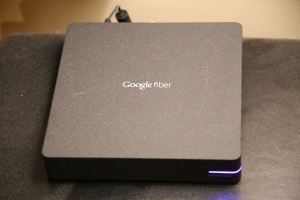You’ve Got Ultra High Speed Internet. Now What?

(Photo: Paul Sableman, Flickr)
Back in February, I wrote about Google’s efforts to bring ultra high speed internet service to Austin and how competitors, such as AT&T and Time Warner Cable were responding. A New York Times piece this weekend takes a look at Kansas City, Mo., the first place where Google rolled out its Google Fiber service, which offers Internet speeds of one gigabit per second. That’s about 100 times faster than the typical Internet connection in the U.S.
Despite all that speed, there simply aren’t many uses for connections that fast, the Times found. As the story noted:
…The area is finding out that Google Fiber is so fast, it’s hard to know what to do with it.
There aren’t really any applications that fully take advantage of Fiber’s speed, at least not for ordinary people. And since only a few cities have such fast Internet access, tech companies aren’t clamoring to build things for Fiber.
What’s more, the roll out of faster Internet service is being left to the whims of the Internet providers themselves. Not surprisingly, they target upscale, tech-savvy areas where residents are likely to want and pay for their service.
As I noted in my Texas Monthly piece, many other countries already offer far faster Internet speeds than Google Fiber, for less money. Sony, for example, offers its Nuro service in Japan for about $50 a month, and Nuro has download speeds of as much as 2.5 gigabits per second—two and a half times as fast as Google Fiber.
Part of the problem: other countries see high-speed Internet as an essential utility for the modern age, but Americans still view it as a luxury. Instead of thinking of it as a way to upload cat pictures faster, we should be thinking of it as the modern equivalent of electrical service. Of course, a century ago, utilities were reluctant to bring electric service to rural areas. It took the creation of co-ops and municipal-owned utilities to bring electricity to everyone.
What can we do with ultra high speed internet? Until we make sure that everyone has access to it, we may never know its full benefits.





